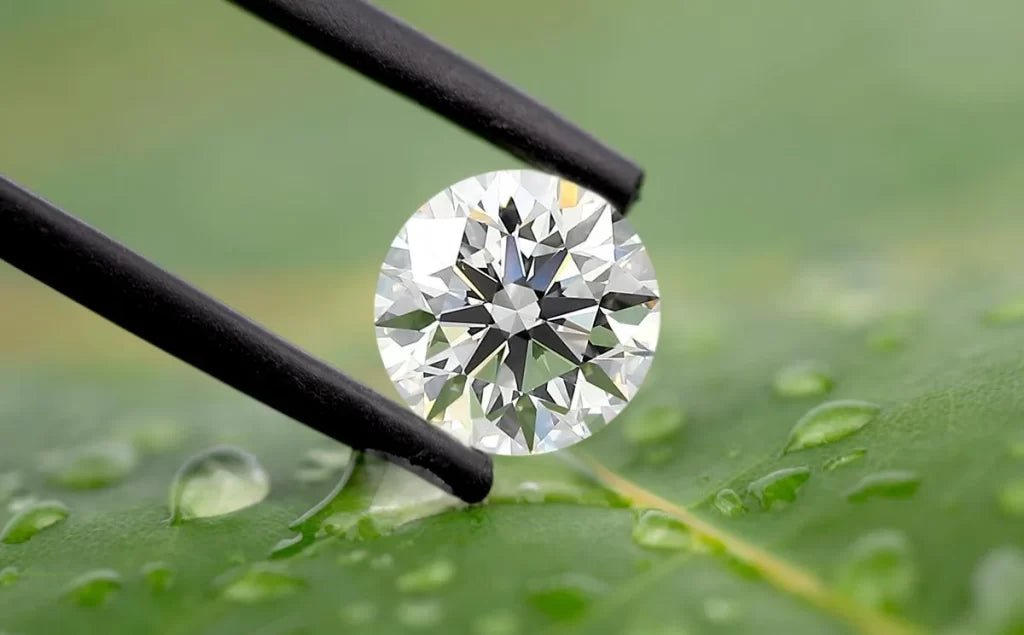
Lab-grown diamonds are created in a controlled laboratory environment using advanced technological processes that replicate the conditions under which natural diamonds form. These diamonds are chemically, physically, and optically identical to mined diamonds but come with several benefits.
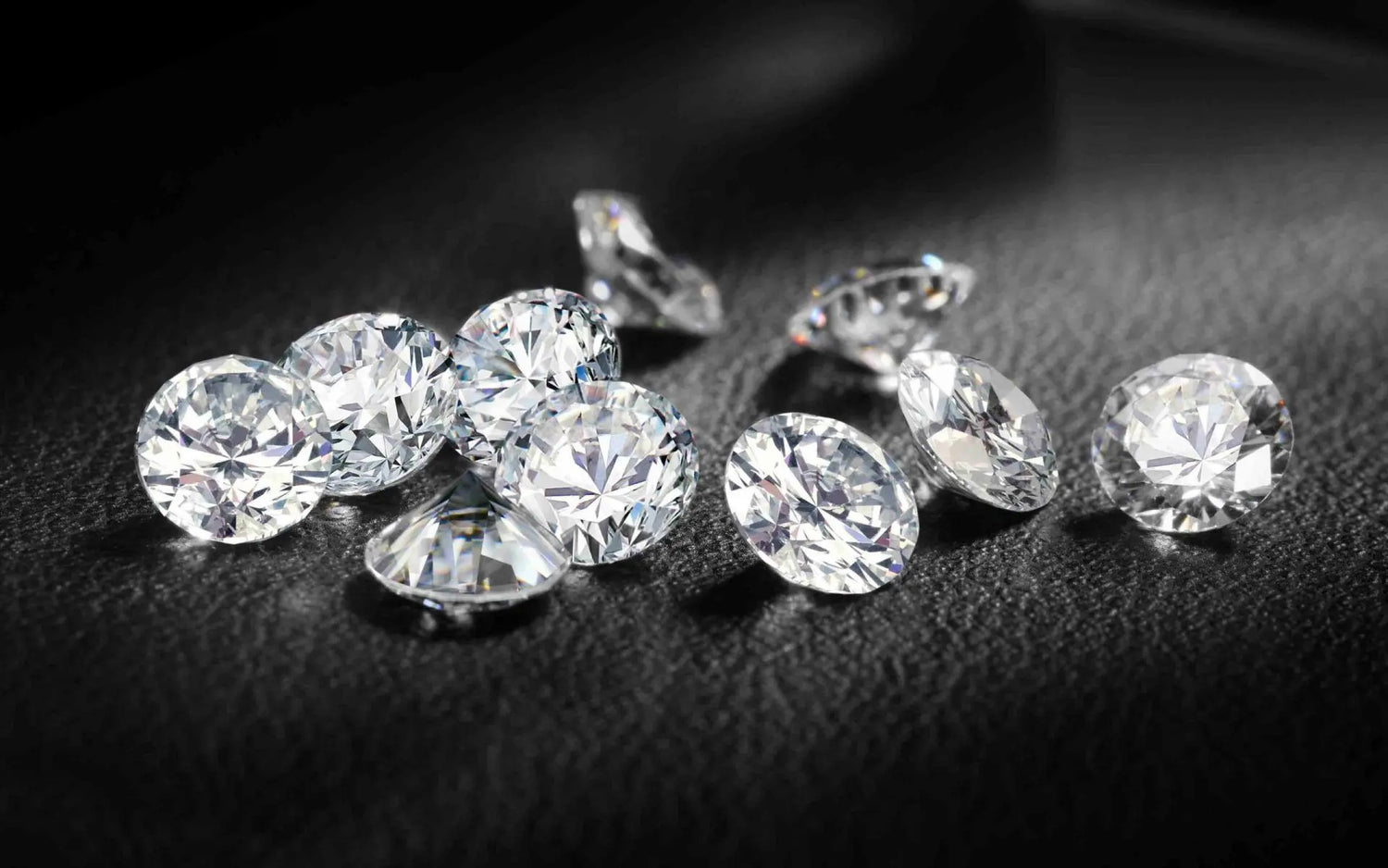
Are Lab Grown Diamonds REAL Diamonds?
Lab Grown Diamonds are just as real as diamonds that are mined from the earth. They have shape, size, color and clarity grades, just like Natural Diamonds. Both Natural and Lab Grown Diamonds have the same physical and chemical properties and both come with diamond certifications.
The Lab Grown Difference
Lab-grown diamonds combine beauty, value, and ethical considerations, making them an attractive choice for modern consumers.
-
Affordability
Lab grown diamonds can be 50–70% cheaper than mined diamonds, allowing you to buy a larger stone or spend more on a setting.
-
Quality
Lab grown diamonds are often purer and have fewer defects than mined diamonds because they are created in controlled conditions.This can result in brighter, whiter diamonds.
-
Sustainability
Lab grown diamonds have a smaller environmental impact than mined diamonds, which can contribute to soil erosion, water pollution, and deforestation. Lab grown diamonds also require less energy and resources to produce.
-
Ethics
Lab grown diamonds are conflict-free because they are grown in factories, rather than mined. The process of sourcing lab grown diamonds can also be traced, allowing you to buy from reputable sources that don't exploit workers or communities.
-
Color
Lab grown diamonds can be created in colors that are rare in nature. The process of growing the diamond crystal in a lab allows you to manipulate and control its properties, including its color.
-
Customization
Lab-grown diamonds can be customized to meet specific size, shape, and color preferences. Buyers have the flexibility to choose diamonds that suit their individual tastes and requirements.
How are Lab Grown Diamonds Made?
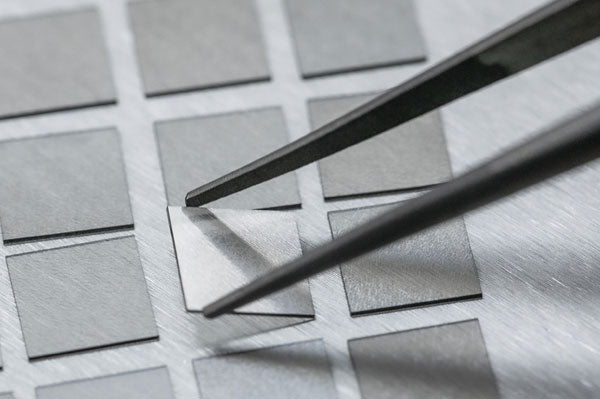
Step 1.
Scientists start with a diamond seed, a tiny slice of a diamond. Then they place this diamond seed into a controlled chamber and surround the diamond seed with pure carbon.
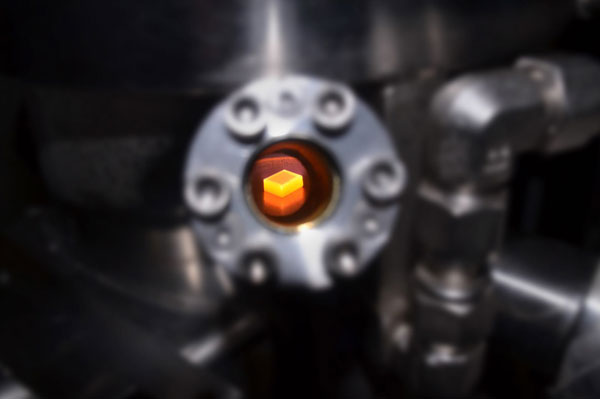
Step 2.
Next, they expose these two materials to very high pressures and temperatures. These conditions cause the pure carbon to melt and bonds around the diamond seed.
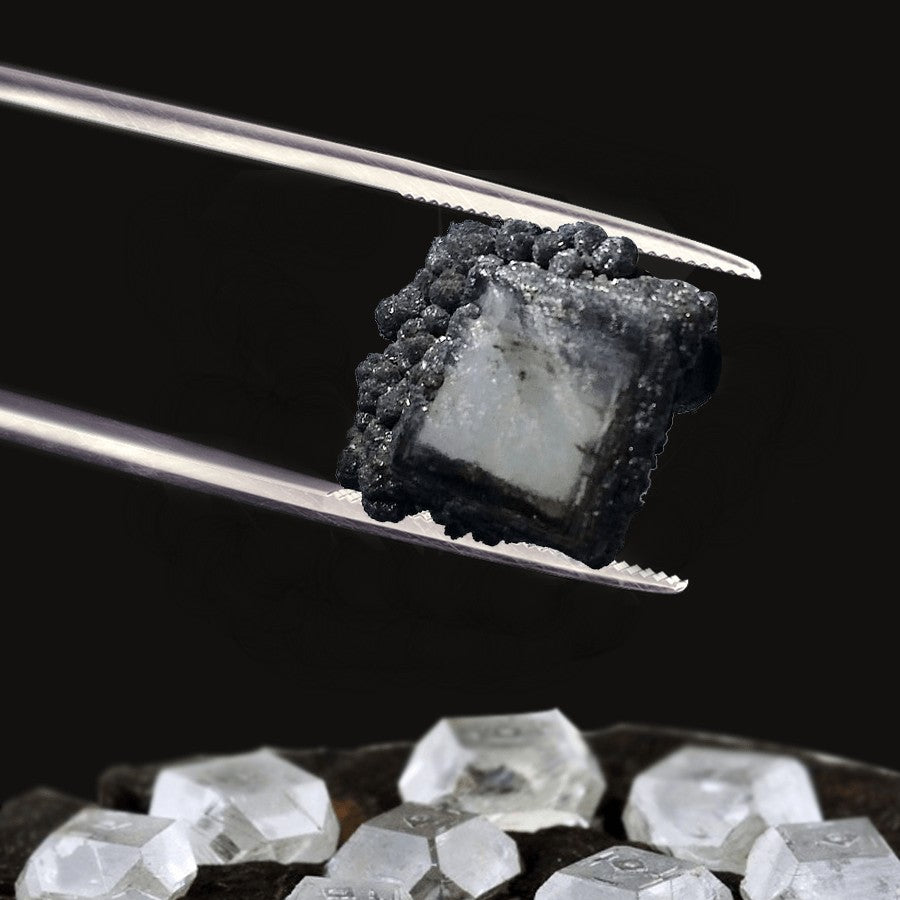
Step 3.
The carbon bonds to the diamond layer by layer, growing each day and eventually creating a lab grown diamond!
How Lab Grown Diamonds Are Made
FAQs
What are lab-grown diamonds?
Lab-grown diamonds are diamonds created in a controlled environment using technological processes that replicate the natural conditions under which diamonds form. They are chemically, physically, and optically identical to natural diamonds.
How are lab-grown diamonds made?
Lab-grown diamonds are made using two primary methods:
- High Pressure High Temperature (HPHT): Mimics the natural conditions of diamond formation with high pressure and temperature.
- Chemical Vapor Deposition (CVD): Uses a gas mixture in a vacuum chamber to deposit carbon atoms onto a substrate, forming diamond layers.
Are lab-grown diamonds real diamonds?
Yes, lab-grown diamonds are real diamonds. They have the same physical and chemical properties as natural diamonds, including hardness and brilliance.
How do lab-grown diamonds compare to natural diamonds?
Lab-grown diamonds are virtually identical to natural diamonds in terms of composition, appearance, and quality. The key differences are their origin and often lower cost.
Are lab-grown diamonds less valuable than natural diamonds?
Lab-grown diamonds generally cost less than natural diamonds due to their more controlled production process. However, their value can vary based on factors such as size, quality, and market trends.
How can you tell the difference between a lab-grown diamond and a natural diamond?
Most lab-grown diamonds require specialized equipment and expert analysis to differentiate them from natural diamonds. They can sometimes have unique growth patterns or inclusions, but these are often not visible to the naked eye.
Are lab-grown diamonds environmentally friendly?
Lab-grown diamonds are considered more environmentally friendly compared to natural diamond mining, which can have significant environmental impacts. Lab-grown diamonds reduce the need for mining and its associated ecological damage.
Do lab-grown diamonds have resale value?
Lab-grown diamonds typically have lower resale values than natural diamonds. Their resale value can depend on factors such as market demand and the quality of the diamond. It's also important to note that most natural diamonds that the typical person buys do not have resale value either, it depends on carat size and quality. Usually only larger, high quality diamonds have resale value and their prices are usually out of the range
Do lab-grown diamonds come with certificates?
Yes, lab-grown diamonds usually come with certificates from gemological laboratories, which detail their characteristics such as cut, color, clarity, and carat weight, similar to natural diamonds.
The Future of Lab Grown Diamonds
Lab-grown diamonds are gaining popularity because they are ethically sourced and more affordable. With ongoing advancements in technology, both the quality and production speed of these diamonds are expected to improve, making them even more accessible. As eco-conscious consumers influence fashion trends toward sustainable jewelry, future demand for lab-grown diamonds is anticipated to increase. The market is already experiencing a rise in designs featuring lab-grown diamonds, highlighting a broader trend towards eco-friendly and socially responsible products.
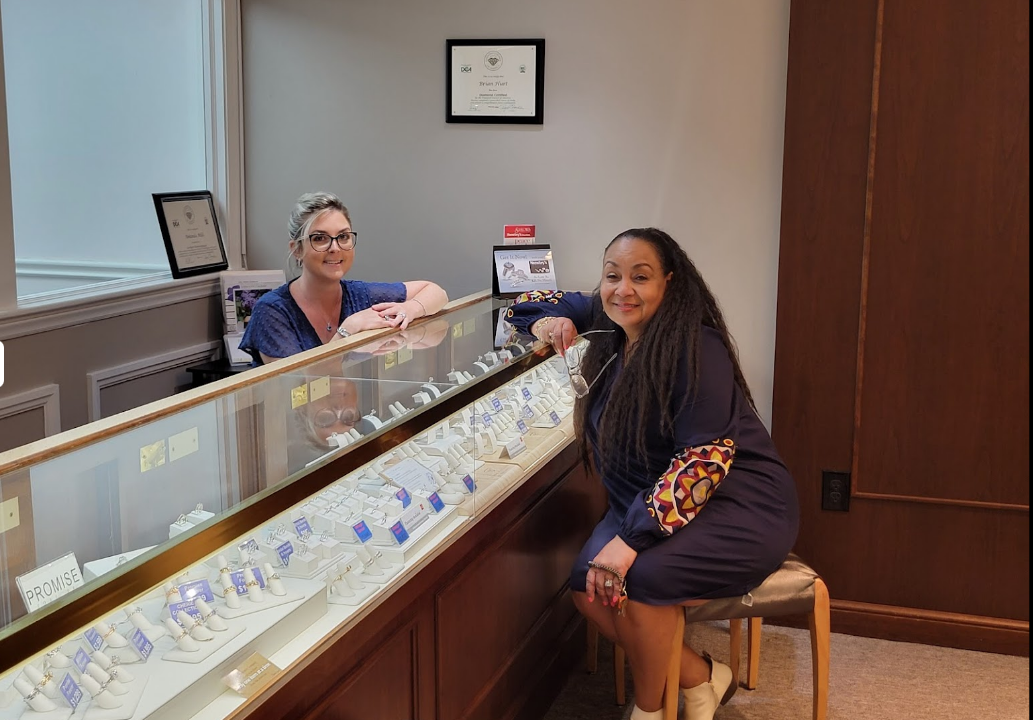
Schedule an Appointment
Choose a convenient date and time to meet with a jewelry expert, who will guide you through our selection of fine jewelry and assist with any custom requests or repairs. Whether you're looking for the perfect engagement ring, a special gift, or a custom design, scheduling an appointment ensures personalized attention and a tailored shopping experience.
-
Questions? Concerns?
-
Peace of Mind Protection Plan
-
Financing
-
Find a Location



